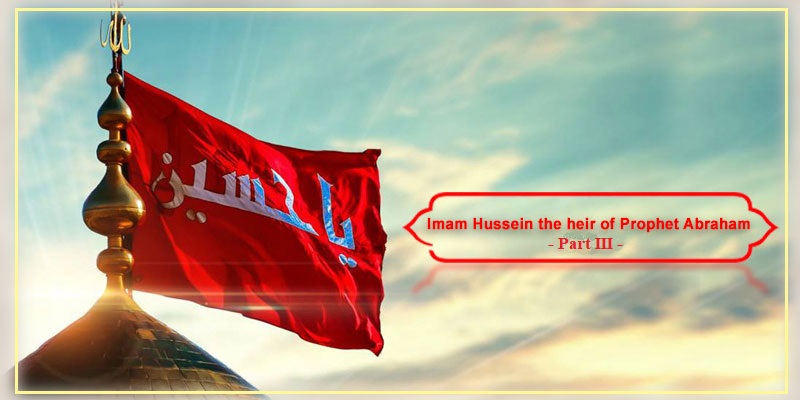The divine plan for salvation includes the establishment of a moral and just society, in which opportunities are fairly distributed and people are treated with honour and dignity to better focus on their spiritual journey. God has sent His messengers with the Book and the Balance for people to establish the social justice (57:25).
Among the Messengers, Prophet Abraham played an out- standing role in establishing the monotheistic tradition, hence, he is considered to be the founder of all Abrahamic religions. He also envisaged and worked towards establishment of a just society centered on tawhid and built around the Ka‘bah.
Prophet Muhammad was sent to accomplish the tasks of all the Messengers and laid the theoretical and practical foundations for establishing a submissive, balanced, united, and just nation.
In a very critical time, when the legacies of Messengers were endangered by Yazid’s attempt to rule in the name of the Prophet’s Caliph and possessing Imam Husayn’s authorization to institutionalise injustice in the name of Islam, and falsehood in the name of truth, Imam Husayn knew that the only way to safeguard the divine plan for mankind and to preserve the tradition of Prophet Abraham and Prophet Muhammad was to sacrifice his life.
This saved the divine path from loss at that time and paved the way for the future.
1. Another lesson we can learn from Ibrahim is that we must never lose hope in asking Allah for our requests even if we may think it has become too late, as Allah is always able to do what He wants.
For long time Ibrahim (a) did not have any child. Perhaps he never expected that indeed God was going to give him not only healthy children but also He is going to make all later Prophets and Imams through him. God forbid, if he was to complain about not having children, then he would have lost this opportunity.
Allah would not have honoured him the way He did. Allah allowed him to continue his legacy from both his children Ishaq and Isma’il. From Ishaq, he had Ya'qub, Yusuf, Musa, Isa, and Bani Israel, and from Isma’il, he had Muhammad and all the Imams.
2. Al-Burhan fi Tafsir al-Qur’an, vol. 2, p. 177.
3. For example, see Bihar al-Anwar, vol. 12, p. 31.
4. Tafsir Noor al-Thaqalayn, vol. 1, p. 554.5. Ibid. p. 555.
6. Al-Kafi, vol. 4, p. 40.
7. Al-Kafi, vol. 7, p. 51.
8. That is, what people find to be pleasant through instinct or after some training through receiving sufficient data.
9. That is, what human beings instinctively or after some training dislike or find to be unpleasant and to liberate are understandable and appreciated by all human beings. If terms like wajib or haraam were used they could not appeal to non-Muslims or even to Muslims who are not religious.
10. This is not to suggest that there is anything wrong with such terms; rather, it is a matter of identifying the targeted audience and then deciding the most appropriate language and tone. Wajib and haraam are two terms for the people who follow shari‘a and obviously the Prophet could not start or limit his mission by addressing only the religious Muslims by focusing on ‘observing the wajib’ and ‘avoiding haram.’
11. Bihar al-Anwar, vol. 18, p. 202.
11. Bihar al-Anwar, vol. 44, p. 324.
12. Bihar al-Anwar, vol. 44, p. 326.
13. Bihar al-Anwar, vol. 44, p. 193.
14. For example, see Ilzam al-Nasib fi Ithbat al-Hujjah al- Gha’ib by Shaykh Ali Yazdi al-Ha’iri.
Source:
IMAM HUSAYN THE HEIR OF PROPHET ABRAHAM
Mohammad Ali Shomali
[P. 20-22].

